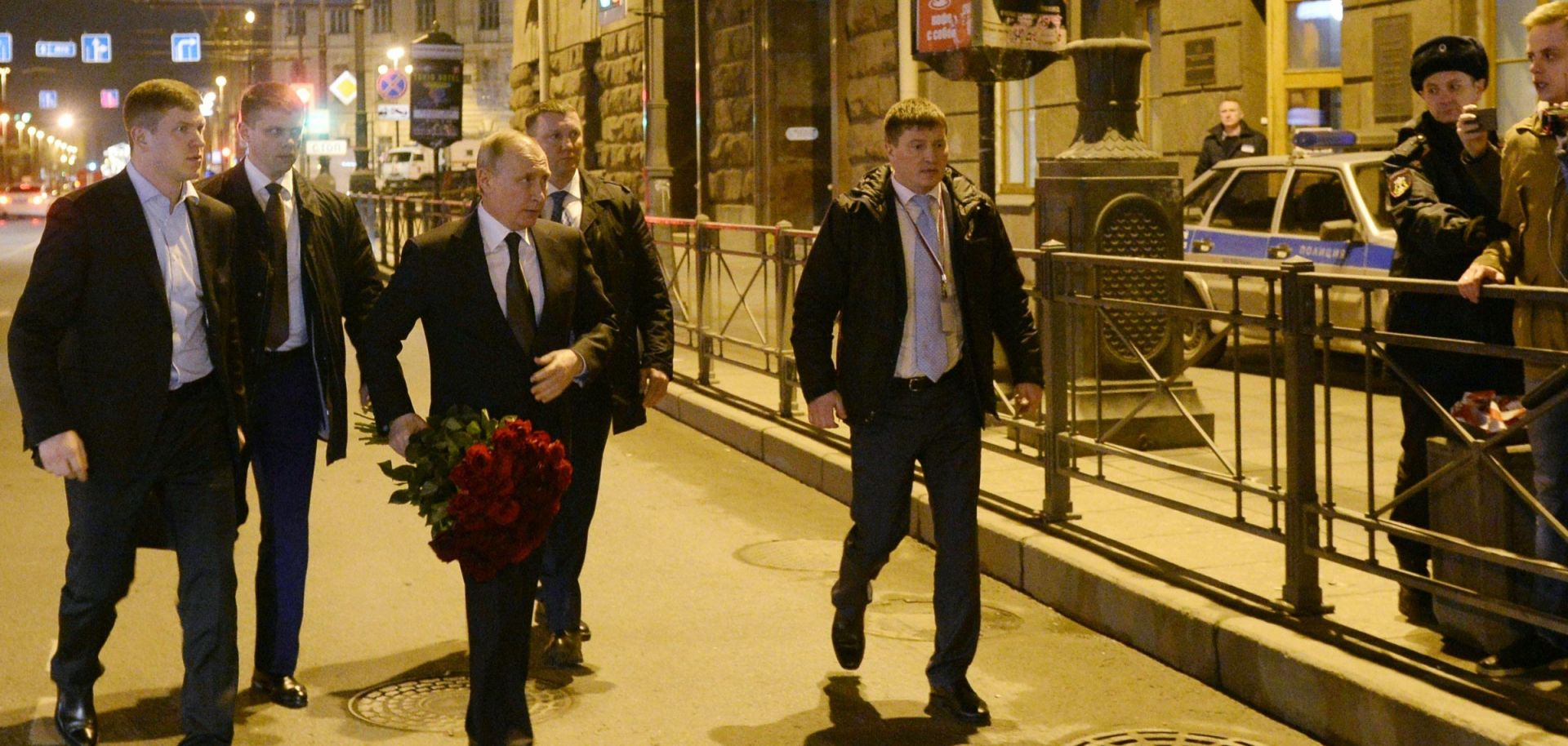REFLECTIONS
Making Sense of the Attack in St. Petersburg
Apr 4, 2017 | 00:38 GMT

Russian President Vladimir Putin brings flowers to honor the victims of Monday's explosion at St. Petersburg's Technological Institute metro station. Though Putin was in the city at the time of the bombing, he was not its target.
(OLGA MALTSEVA/AFP/Getty Images)
Subscribe Now
SubscribeAlready have an account?
